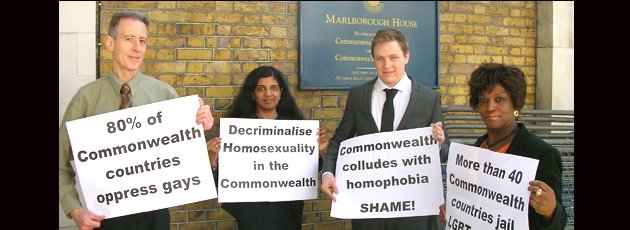- Home
- News & Blogs
- About Us
- What We Do
- Our Communities
- Info Centre
- Press
- Contact
- Archive 2019
- 2015 Elections: 11 new BME MP’s make history
- 70th Anniversary of the Partition of India
- Black Church Manifesto Questionnaire
- Brett Bailey: Exhibit B
- Briefing Paper: Ethnic Minorities in Politics and Public Life
- Civil Rights Leader Ratna Lachman dies
- ELLE Magazine: Young, Gifted, and Black
- External Jobs
- FeaturedVideo
- FeaturedVideo
- FeaturedVideo
- Gary Younge Book Sale
- George Osborne's budget increases racial disadvantage
- Goldsmiths Students' Union External Trustee
- International Commissioners condemn the appalling murder of Tyre Nichols
- Iqbal Wahhab OBE empowers Togo prisoners
- Job Vacancy: Head of Campaigns and Communications
- Media and Public Relations Officer for Jean Lambert MEP (full-time)
- Number 10 statement - race disparity unit
- Pathway to Success 2022
- Please donate £10 or more
- Rashan Charles had no Illegal Drugs
- Serena Williams: Black women should demand equal pay
- Thank you for your donation
- The Colour of Power 2021
- The Power of Poetry
- The UK election voter registration countdown begins now
- Volunteering roles at Community Alliance Lewisham (CAL)
Why the Commonwealth should act on LGBT rights
Rakshita Patel argues that if we believe in race equality, we should also be committed to ensuring equal rights for everyone, and should show solidarity with our Lesbian, Gay, Bisexual and Transgender brothers and sisters.
Last month I was part of a Peter Tatchell Foundation delegation to the Commonwealth Secretariat. The Peter Tatchell Foundation is a human rights organisation which seeks to promote and protect the human rights of individuals, communities and nations, in the UK and internationally. We met with Commonwealth officials to discuss how the Commonwealth can best advance Lesbian, Gay, Bisexual and Transgender (LGBT) human rights.
Why was I part of the delegation and why is the campaign for equal rights for LGBT people in the Commonwealth important to me?
I define myself as British. I was born in England and have lived my whole life in England. I have Indian heritage, as my parents were both born and brought up in India, and they came to England in the 1960s.
I am part of the Black and Asian (Commonwealth) diaspora living in England. There is a real connection between Black and Asian British people and the Commonwealth nations as most Black and Asian people have family and relatives “back home”, and there is frequent and regular contact via phone calls, visits back and forth, letters and, nowadays, social media channels eg Facebook, and the internet.
Although I am straight, I have been a lifelong supporter of LGBT rights. I have always been passionate about equalities in general, and I firmly believe that if we, as BME people, are committed to achieving race equality then we should be equally passionate about ensuring equal rights for everyone, and we should show solidarity with our LGBT brothers and sisters.
I have been increasingly worried and disturbed by the way LGBT people are viewed and treated in some parts of the Commonwealth. To cite specific examples, Uganda has a “Kill the Gays” Bill and Nigeria has a “Jail the Gays” Bill currently before their Parliaments, which propose prison sentences, and even the death penalty, for LGBT people. Regardless of whether you believe homosexuality to be right or wrong, this is clearly unacceptable.
Nearly 80% of Commonwealth countries still criminalise homosexuality – 43 of the 54 member countries. These 43 Commonwealth nations represent a majority of the 79 countries worldwide where homosexuality remains a crime.
This makes me sad and leaves me disappointed. I would like the Commonwealth to be the gold standard on human rights laws and equalities issues and to live up to the Commonwealth ideals and values.
Following the meeting Peter Tatchell, Director of the Peter Tatchell Foundation, and one of the UK’s leading gay rights campaigners said:
While some progress is being made, it is painfully slow. More reform is needed urgently. Successful pressure for change in the Commonwealth is most likely to come from within the member states … that’s why it is so important to empower and support indigenous LGBT and human rights defenders.”
My hope following the meeting is that the Commonwealth officials will have listened and understood and will continue to fight the persecution and oppression of LGBT people in the Commonwealth and work towards the decriminalization of homosexuality across the Commonwealth.
Only then can the Commonwealth claim to treat all of its citizens with dignity and respect, and to have delivered true equality for its citizens.
Rakshita Patel
